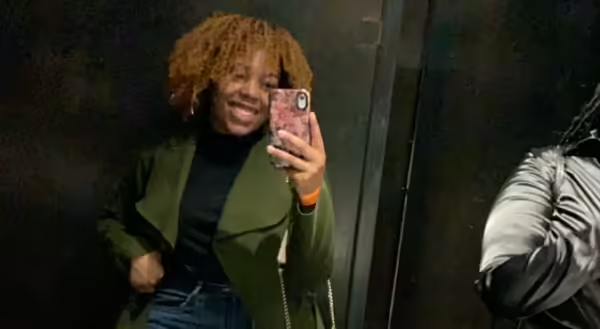
As an ISP Program Fellow, Diamond Ruffin is working with 12 Illinois communities awarded funding through the Connect Illinois grant sponsored by the Department of Commerce and Economic Opportunity Office of Broadband. Her efforts are helping communities identify gaps in access to promote digital equity and to ensure it is reflected in their community broadband development plan. She is also collaborating with the Benton Institute.
Diamond is also working with Extension Specialist Nancy Ouedraogo from the Community and Economic Development Team to create resources and host content for local officials that will help communities plan for equitable broadband services.
Why did you apply for the Illini Science Policy Program?
I applied for the Illini Science Policy Program because in my social work classes in January we had been talking about coronavirus when it hit Wuhan and how so many social justice issues were coming to light because of it. I accepted the position with DCEO Office of Broadband because I became increasingly interested in digital equity as inequities started to arise due to COVID-19.
Tell us a bit about what you hope to do as a result of being a fellow?
As a fellow, I hope to gain insight into public agencies, policy, and decision making as well as build my network. I also hope to make an impact on the communities I will be serving by providing support and guidance on equitable program planning.
Describe how you and your host determined what project(s) you would work on?
I obtained my masters degree in social work which was different considering my host agency deals mainly with technology. But, because of my background, we decided it would be most beneficial if I worked with the Benton Institute on the Illinois Connected Communities program. My specific role is to provide digital equity and inclusion knowledge and support to the 12 communities that received grants.
What is one thing you learned from your host mentor so far?
One thing I learned from my mentor so far is to stay up to date with policy changes that affect the work we do.
Why is your issue important?
Digital equity is important because it promotes the closure of many gaps: wealth, income, employment, social, knowledge, education, health, etc.
Who is impacted by the issue you are working on?
Everyone is impacted by digital equity but especially at-risk populations including the elderly, disabled, rural and low-income communities, and communities of color.
What is one thing you want people to know about this issue?
One thing I want people to know about this issue is that digital inclusion should be a civil right. Not being digitally connected affects many areas of our life and should be treated as so. In the age of COVID-19, everything from our health to our income is now digital and if we aren’t able to access the internet, we are at a huge disadvantage.
Describe how you and your host and Extension Mentor determined what project you would work on?
The project I am working on was determined by both of our interests. We both find that educating others is one of the most effective ways to incite evident change and we also are interested in social justice.
What is the most unexpected thing about this program so far?
The most unexpected thing about the program so far is my mentor. I was not expecting to get a mentor but it was a welcomed surprise. I also wasn’t expecting the amount of support that is given through Extension.
If you could do one thing through this program and think, “Wow, I did that,” what would it be?
If I am able to help pull off a documentary that showcases the inequities in the South Shore neighborhood of Chicago and it gets the attention it deserves from local leaders, I will feel accomplished.
Anything else you’d like the readers to know about your time so far?
It has been great but difficult at times to adjust to a new field of work. The language and culture of the tech world is totally different from social work, but I have welcomed the challenge of learning new things every day.
More information about the Illini Science Policy Program is available here. Keep reading to learn more about Diamond's colleagues in the inaugural class of 2020 ISP Fellows.